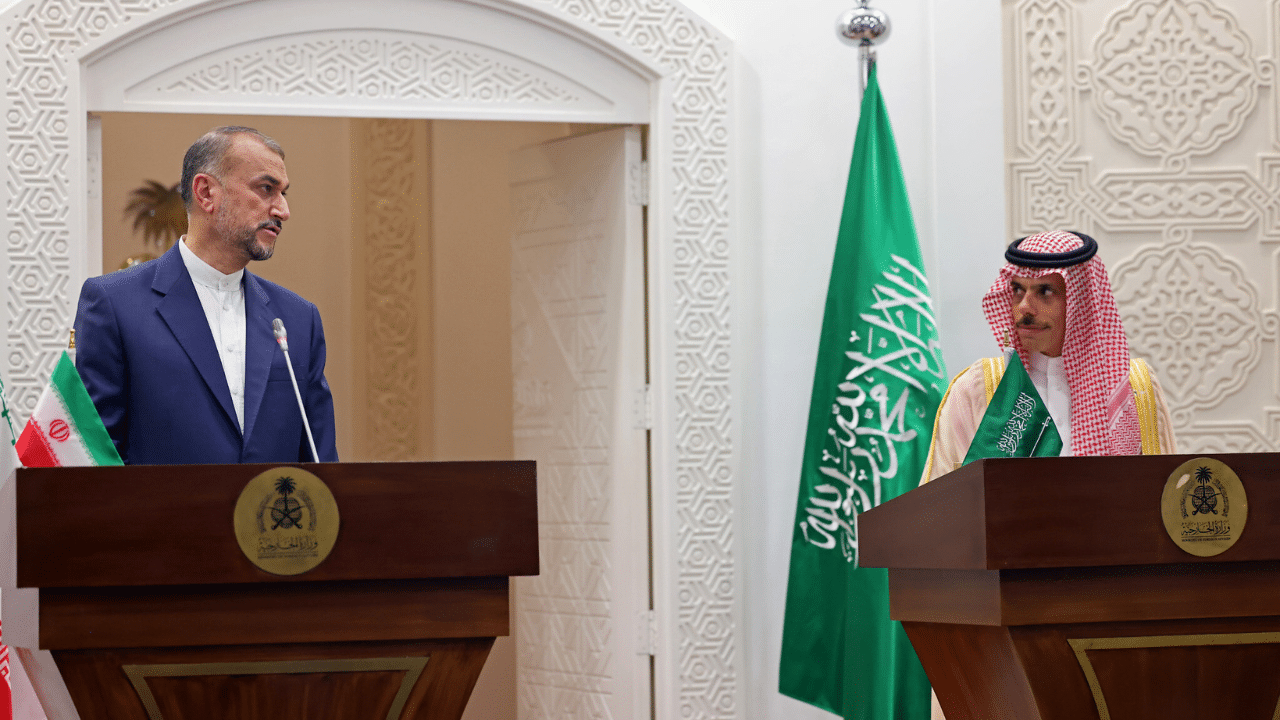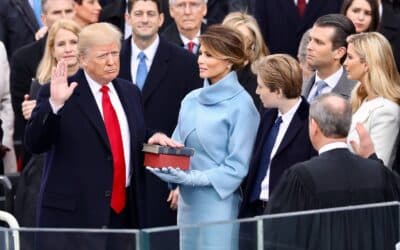Iran’s top diplomat, Hossein Amir-Abdollahian held a meeting with his Saudi counterpart in Riyadh on Thursday, where both sides preached unity and dialogue, in a one-day visit focused on “bilateral ties, regional, and international issues.” This comes five months after China brokered a peace deal between the two long-time arch rivals.
“Relations between Tehran and Saudi are on the right track and we are witnessing progress,” Amir-Abdollahian declared during a press conference with Saudi Foreign Minister Prince Faisal bin Farhan Al Saud, adding “the talks were successful.” Two months ago, Prince Faisal became the first Saudi foreign minister to visit Iran since 2006.
Earlier this month, Tehran announced that the Saudi embassy in Iran had begun operations. Confirming this, Prince Faisal described it as ““another step in the development of relations between the two countries.”
Amir-Abdollahian continued saying these talks in the Saudi Foreign Ministry’s Islamic Solidarity Hall “will be a prelude to the meeting of the heads of the two countries.” He also touted future trade and security cooperation, although without announcing any new deals.
Since the two sides restored full diplomatic relations, there has been talk creating a naval alliance as well as significantly boosting bilateral trade and investment. On Wednesday, Iranian state media reported military officials from both countries met in Moscow on the sidelines of a security conference.
In June, Tehran reopened its embassy in the Gulf Kingdom with a flag-raising ceremony. Alireza Enayati, Iran’s new ambassador, accompanied Amir-Abdollahian for the visit this week to “officially start his mission,” according to Iranian state media broadcaster IRIB.
“We look forward to a new phase in our relationship based on our Islamic brotherhood and work towards common interests,” Prince Faisal said.
The meeting between the top diplomats comes amid US attempts to foster a normalization agreement between Tel Aviv and Riyadh. Amir-Abdollahian took aim at Israel in his remarks at the press conference. He proclaimed “we continue to support Palestine,” highlighting the nearly sixty year military occupation as “the most important issue in the Islamic world.”
Saudi Crown Prince Mohammed bin Salman told the Arab League in May that “the Palestinian issue was and remains the central issue for Arab countries, and it is at the top of the kingdom’s priorities.”
Middle East Eye reported this week, “at least 213 Palestinians have been killed by Israeli fire this year, including 37 children – a rate of nearly one fatality per day. A total of 177 people have died in the West Bank and East Jerusalem this year, making 2023 one of the bloodiest years in the occupied Palestinian territories. Another 36 people have been killed in the Gaza Strip.”
Both Israel and the US seek to exploit the Abraham Accords “normalization” agreements as a way of selling weapons to Arab states while covering up the plight of the Palestinian people suffering under the Israeli apartheid regime. The agreements are also being used as a fig leaf in the region for an anti-Iran, NATO style, coalition led by Washington. The Abraham Accords are becoming increasingly unpopular in the region as a result of rampant Israeli war crimes against Palestinians.
“There is no doubt that the Zionist regime will continue its efforts to create division in the Muslim world and the region. We follow the movements of the Zionist regime with insight and vigilance,” Amir-Abdollahian insisted.
Officially, Riyadh has ruled out any deal recognizing Tel Aviv until the millions of Palestinian Muslims and Christians have their own state. However, media reports suggest the Saudis are holding out for major concessions from the White House, including a NATO level security guarantee, access to increasingly advanced weapons systems, and assistance constructing a civilian nuclear energy program.
































